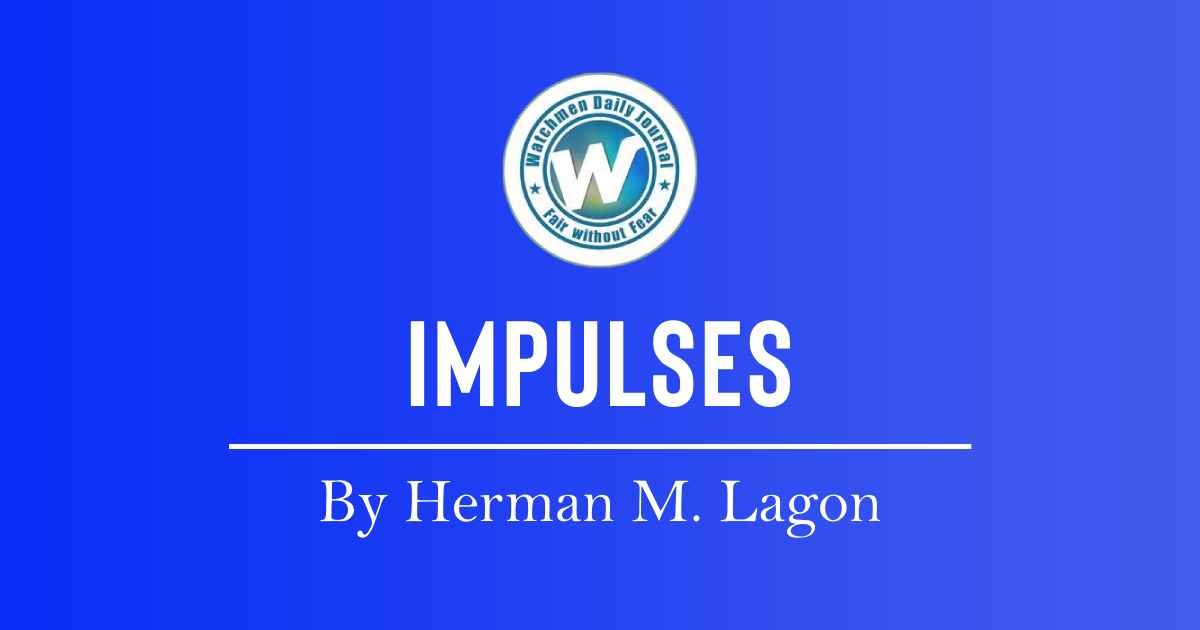 By Herman M. Lagon
By Herman M. Lagon
As the lights dimmed at Cinema Exmundo in UP Visayas Cinematheque this Friday, April 19, anticipation coursed through the audience at the Leoncio P. Deriada Conference on Literature and Cultural Work. The spotlight was on Kevin Piamonte’s “Dog Eaters,” a film that transcends mere adaptation to powerfully reimagine Leoncio Deriada’s renowned short story, delving deep into themes of societal decay and the indomitable human spirit.
My acquaintance with Deriada’s works dates back to my tenure at Ateneo de Iloilo, where his profound stories, particularly “Dog Eaters,” were integral to our Ripples campus journalists’ creative writing workshops. Over the years, Teatro Ateneo staged several plays based on this narrative. Each presentation unfolded new layers of the narrative, much like revisiting the classic pages of Jonathan Swift’s “Gulliver’s Travels,” showcasing its timeless allure and depth.
Directed by Piamonte, this film encapsulates Deriada’s narrative mastery, weaving significant social commentary within the confines of Artiaga Street, filmed in Brgy. Pison, Mandurriao, Iloilo City. The locale itself, with the contrasting sight of towering condos as the background for the low-lying slums, transforms into a pulsating character, framing the lives it envelops with its grim and constraining atmosphere.
From the outset, “Dog Eaters” captivates with its visceral portrayal of Mariana, a role imbued with resilience and nuanced despair by Sunshine Teodoro. She is a woman trapped by the monstrous masculinity of her husband, Victor, chillingly portrayed by Nathan J. Sotto. Victor’s reign, fueled by his “tambay” barkadas in Tanduay (tuba in the original verse) and “dog meat” adobo, epitomizes the toxic patriarchy that suffocates Mariana, painting a raw picture of oppression and control.
Piamonte’s direction fearlessly confronts the discomforting themes of power and submission, enriched by the authentic use of Hiligaynon invectives that lend a robust texture to the narrative. The escalating conflict between Mariana and Victor, with the maddening backdrop of a barking dog (Ramir) and a crying baby, poignantly illustrates a fierce battle between subjugation and defiance, culminating in Mariana’s radical claim over her own body and future — a defiant rejection of the patriarchal chains that bind her.
This cinematic trip is a powerful combination of internal conflicts, moral dilemmas and political commentary. It questions the institutionalization of oppression through the normality of brutality and exploitation. The expert use of cinematography and sound design achieves an immersive experience that hits audiences on numerous levels, heightening the film’s eerie mood and underscoring its emotional complexity.
In a particularly poignant ending, as Mariana rides away in a pedicab, she imagines a line of women from diverse backgrounds applauding her audacity. This artistic depiction highlights her journey toward emancipation and is a powerful metaphor for women solidarity and resistance against oppression.
The post-screening talkback session with Piamonte provided further affirmation and insight into his creative ethos and the film’s thematic intricacies. His approach was respectful and pioneering, striving to honor Deriada’s original work while expanding its relevance to contemporary societal issues.
Reflecting on “Dog Eaters,” it becomes evident that the film is more than a narrative about individual struggles; it is a profound commentary on the pervasive malaises that afflict our society. It compels us to reevaluate our roles in perpetuating or challenging these injustices.
As the conference drew to a close, the robust discussions among writers, artists and educators, underscored the enduring impact of Deriada’s literary legacy and Piamonte’s visionary interpretation. “Dog Eaters” is a golden standard of artistic integrity and critical engagement, challenging us to confront and reflect on the intersections of culture, gender and power. This exemplary film not only captures the essence of Deriada’s literary pursuits but also propels them into contemporary discourse, reminding us of the transformative power of cinema and literature in shaping public consciousness and fostering a more reflective and just society.
***
Doc H fondly describes himself as a “student of and for life” who, like many others, aspires to a life-giving and why-driven world that is grounded in social justice and the pursuit of happiness. His views herewith do not necessarily reflect those of the institutions he is employed or connected with./WDJ

